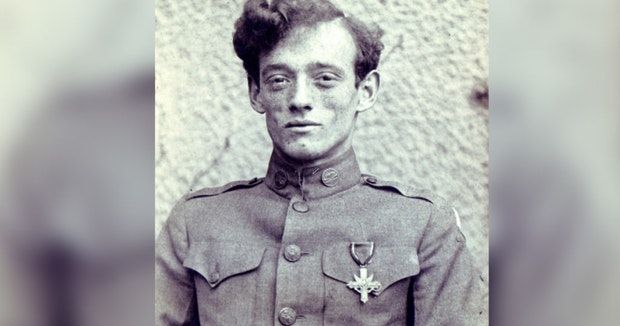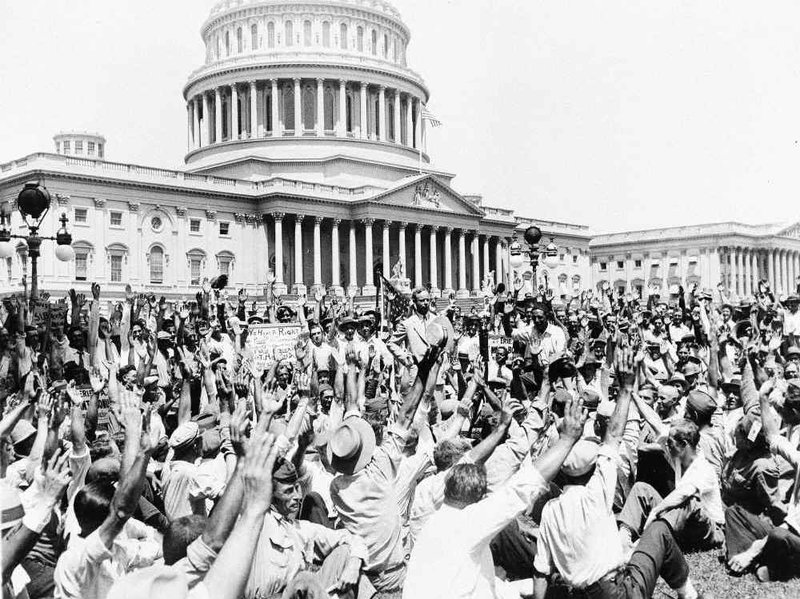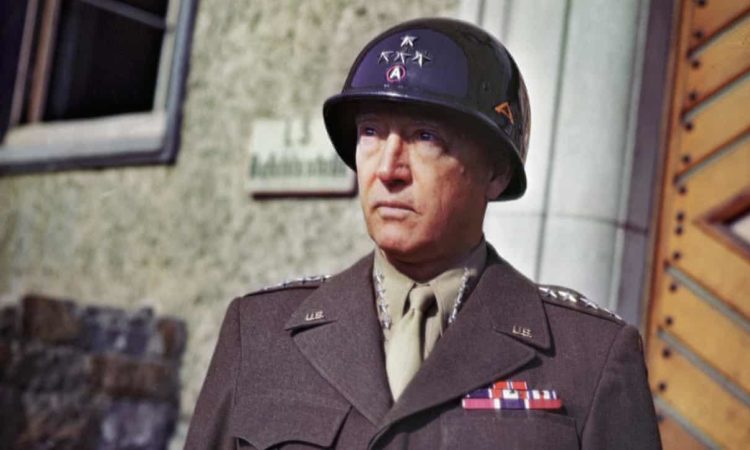His orderly – Angelo – pulled him to safety.
He then dressed Patton’s wounds in a shell crater. Angelo was awarded the Distinguished Service Cross for his actions. Patton told newspapers Angelo was “without doubt the bravest man in the American Army. I have never seen his equal.”

The young orderly took the praise reluctantly and when the war ended, he went back to work as a civilian. Patton, of course, continued his military career.
Then the Great Depression hit.
Angelo soon found himself unemployed along with 25 percent of the country. The Depression hit Great War veterans especially hard. As soldiers, they made much less than the average factory worker at the time. So in 1924, Congress voted to give them an adjusted wage – called a “Bonus” by the plan’s critics – $1.25 for every day overseas and $1.00 for every day in the States.
Veterans who were owed 50 dollars or less were paid immediately. Everyone else was issued a certificate, with four percent interest and an additional 25 percent upon payment. The only problem was that this was to be paid in 1945 and the vets needed the money ASAP.
In response, WWI veterans converged on Washington with their families, setting up in large tent cities. Estimates were that 20,000 veterans were living in the D.C. camp. The media dubbed them “The Bonus Army.” Living among them was Joe Angelo.

Now known as American military legends, the men in charge of carrying out President Hoover’s order for the U.S. Army to clear the camp were Dwight D. Eisenhower, Douglas MacArthur, and George S. Patton.
Patton, now a major, was one of the first officers to arrive in the capital. Patton led federal troops up Pennsylvania Avenue on the way to the Bonus Army camp. Using swords and gas grenades to clear the marchers, his cavalrymen spent the night destroying the veterans camp.
The next morning, Angelo tried to get close to Patton, but his former commander outright rejected the advance. Major Patton told his aides with Angelo in earshot, “I do not know this man. Take him away and under no circumstances permit him to return.”
The New York Times ran a story on the meeting between the two men the very next day, under the headline “A Calvary Major Evicts Veteran Who Saved His Life in Battle.”
In their book on the Bonus Army, “The Bonus Army: An American Epic,” Paul Dickson and Thomas B. Allen, wrote that Patton explained the situation to his fellow officers over coffee right after Angelo was escorted away:
“That man was my orderly during the war. When I was wounded, he dragged me from a shell hole under fire. I got him a decoration for it. Since the war, my mother and I have more than supported him. We have given him money. We have set him up in business several times. Can you imagine the headlines if the papers got word of our meeting here this morning. Of course, we’ll take care of him anyway.”
Patton called it the “most distasteful form of service” and spent the interwar years working on less violent ways the military can clear such uprisings in the future.
This article was written by Blake Stilwell and originally published on We Are The Mighty.










COMMENTS